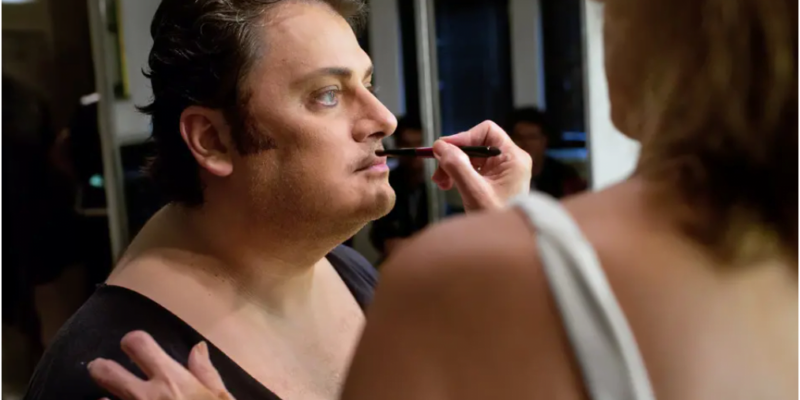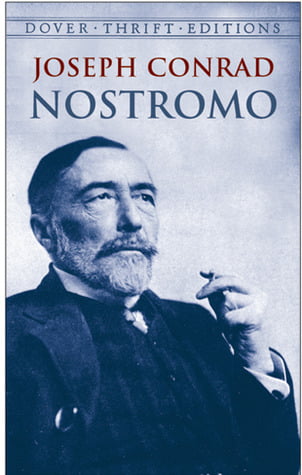“National Opera’s Sophie de Lint demonstrates toxic ideology on art”
Professor Eduard Bomhoff has written an interesting article in Wynia’s Week about Sophie de Lint’s policy at the Dutch National Opera. He begins with “the bad news: the Dutch National Opera will not refund already paid tickets for the remaining performances of Fidelio”.
Here are some excerpts from the article:
“We know a lot about Ms. De Lint’s thinking, because a large printed photo plus two pages of text have graced every issue of the Opera’s Friends magazine and all brochures since her arrival. I wouldn’t think that this formula, with the director in the foreground, is the best sales formula for the Opera – a not-so-good sign is that donations to the Opera, both large and small, have dropped thirty percent in the last two years.

“Ban on white tenors from playing Otello”
“At the Opera, the new brochure takes the crown. A full-page new photo of Ms. De Lint and now even three pages about her ideas. Here are two, and this visitor is not happy about it. The unanimously criticized Fidelio was – we hope – a one-time misfire, but her ideology remains dangerous for seasons to come.”
“One: her first major solo decision was to cancel an already-booked new performance of Verdi’s Otello because of ‘the progressive understanding that an all-white team, including the interpreter of Otello, is problematic. This no longer felt right with the current changes in our society… Otello in a contemporary form can only be done in a team of color.’ (…) So a white tenor, in her opinion, cannot play the role of a general from North Africa who becomes jealous of his wife.”

“Toxic ideology”
“Fortunately, Mrs. De Lint is not the director of the Royal Concertgebouw. Then she would have had to ban Debussy’s Iberia on the same grounds, because the composer never traveled to Spain. And Joseph Conrad’s masterful novel Nostromo, a wonderful book about Latin America, was also canceled with her, because the author never saw more than a day or two of that continent from his ship floating off the coast of Venezuela. What a poisonous ideology to ban such a book.”
“Two: ‘I want to open up our art form… we are still very far from an audience that is representative of the population. We’re working on it, it’s a top priority.’ Aren’t people allowed to have different tastes and preferences? The provincial town where I live has been very good at water polo for a long time. So should it be a top priority to make the team and the spectators representative of the entire population of the Netherlands?”
“In sports, such ideas have rightly never caught on. Winning games and keeping the fans enthusiastic are the priorities for management, not whether the team and spectators reflect the ‘correct’ percentages of all kinds of ethnic groups in the total population. I like opera and music, but I know nothing about water polo; the other way round is fine too.”
“(…) If Mrs. De Lint had said she wanted to make it easier for young people to enjoy an opera – I totally agree. If the Vredenburg Concert Hall in Utrecht finds a formula to attract more people to classical music – wonderful. But to set the goal that the audience should be representative of the entire population is nonsense anyway. Let the new cabinet quickly reintroduce music and sport into primary education, and all children will be the richer for it.”

“Wrong view of art”
“After all, Mrs. De Lint has professional experience, but apparently not in marketing. If she did, she would never put her own pictures and reflections so prominently at the front of all her publications. Nevertheless, I have seen successful productions this year; Innocence was impressive, and Trittico was beautifully directed and sung. But to cancel Otello because the director and the tenor are white reveals a false view of art and artists.”
“And it is dangerous to think that the audience is not yet representative of the population as a whole. Soon, after an already staged new opera about Shell, Ms. De Lint will also pay for an opera about nitrogen to get more climate activists into the opera house.”
“It reminds me of the anecdote about the Mona Lisa: ‘Yes, a beautiful painting, but surely Leonardo da Vinci could have reserved a corner in Florence for infant mortality.’ Surely that was the most important problem of his time. “

Also, if we go down that road (Otello must not be sung by a white singer) then presumably Violetta/Gilda should not ever be sung by black singers.
I fully agree with prof. Bomhoff. Bravo!
Me myself, I am twice a victim of Ms. De Lint’s predilection for absurd opera-staging in Amsterdam (Fidelio; Rigoletto).
Besides: Giuseppe Verdi, the composer, always chose his singers on the quality of their voice; never on the base of the colour of their skin. The first “Otello” was Francesco Tamagno, an Italian tenor. Simply because he had the best voice for “Otello” at that time.